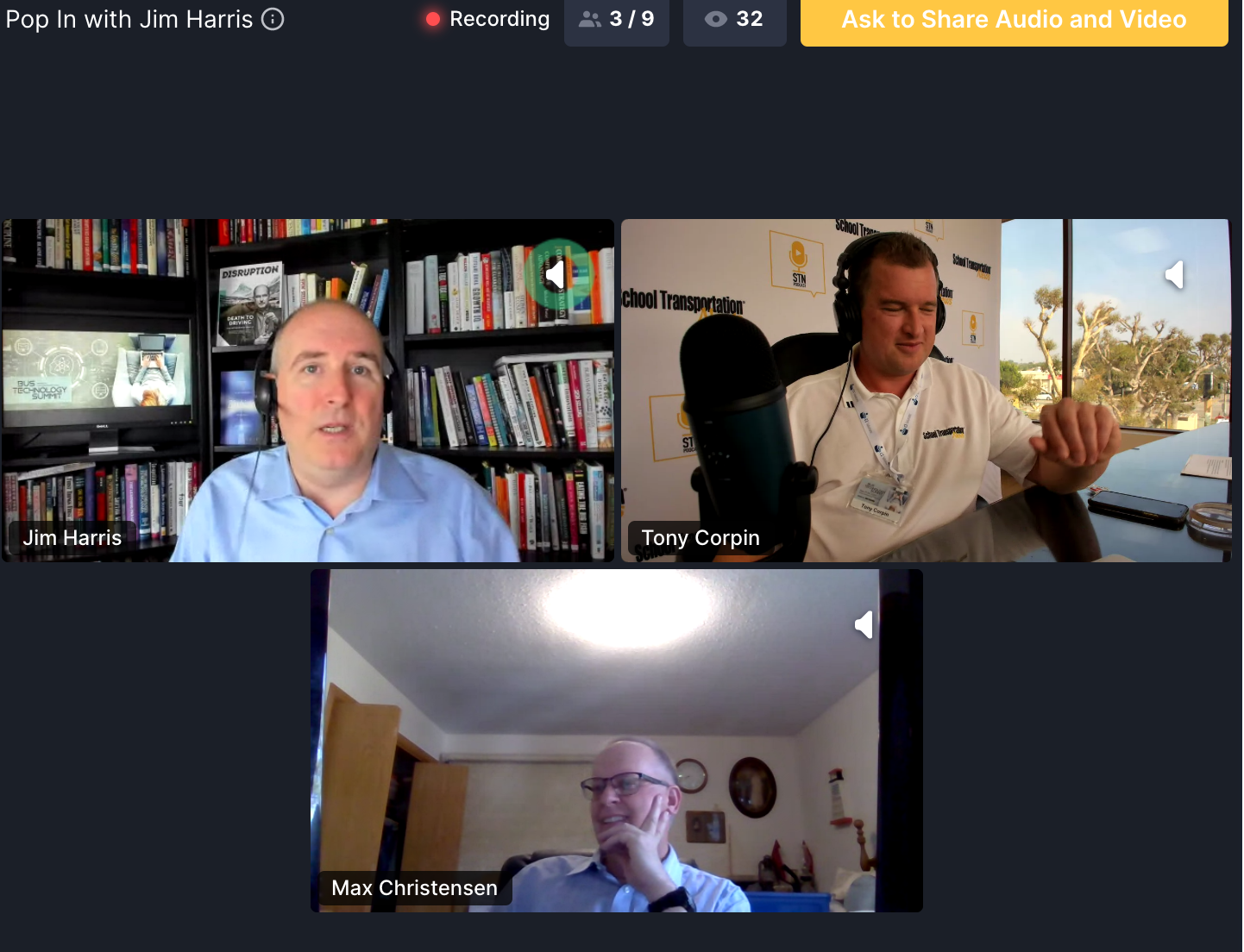
[ad_1]
Jim Harris, one of North America’s foremost management consultants, public speakers, authors and thinkers on change and leadership, discussed embracing new technology during his Tech Talk at the virtual Bus Technology Summit on Tuesday.
He commenced the conversation by showing several pictures of people hanging precariously from a cliff in Brazil. However, he followed up with more images that show the apparent cliff is nothing but a large rock that people are standing on, hanging from or leaning against.
Harris said depending on how one sees a situation determines how they will behave. In return, it will likely influence the results. Changing the frame, he said, will change everything. He referenced a quote by his former associate, educator, author and businessman Stephen Covey: “We don’t see the world as it is. We see it as we are.”
In other words, Harris said, outlook informs everything else. For example, he talked about motor vehicle accidents, of which 94 percent are due to driver error. He said autonomous vehicles are going to have a huge impact on safety, as lives will be saved. Yet, he said autonomous vehicles will also have a profound influence on the auto insurance industry.
Companies like Uber and Lyft are also going to change the market, as the convenience and cost-effectiveness have changed. The expansion of Uber is already impacting the New York City taxi market, for example.
Another change to the transportation industry, Harris said, is electrification. Harris said in 2018, the highest number of cars were sold in the world, yet the market has been on the decline ever since. Telsa, however, is exploding and is able to sell insurance to Telsa owners in California at rates that are 20 to 30 percent less than traditional companies because of the autonomous features.
Related: COVID-19, Environment Give Electric School Buses a Jump Start
Related: Zonar CEO Opens Bus Technology Summit With ‘CASE’ for Technology Investments
He said car companies are getting caught off guard with this new technology, as it used to be extremely expensive. But with increased adoption and multiples technologies exponentially improving, price-performance compounds.
Take electric vehicles, for example. The lithium-ion batteries have decreased by 90 percent since first being introduced. in 2018, batteries made up almost half of the cost of electric vehicles, but soon, Harris said EVs will be cheaper than gas-powered cars.
How the Trends Will Impact the School Bus Market
An average car has 2,000 moving parts, while a Telsa has 20, and maintenance and fuel costs are 70 to 80 percent less. Harris said, with the same capital investment for both vehicles the market will start to change.
He said normally when one thinks higher quality, they think higher cost. But what the transportation industry is starting to see is that higher quality now means lower costs. For instance, Harris said it might be more cost-effective to use smaller vehicles to pick up those hard to reach students who live outside of suburban areas, thus shortening travel times for everyone.

He addressed those who might believe the transportation industry isn’t changing or won’t change quickly. He showed a picture of New York City in 1900, where only one car was present on the street amid hundreds of horse-drawn carriages. In 1913, only one horse-drawn carriage was seen in a sea of cars. He said the entire market changed in only about a decade, indicating that the transportation industry will continue to change.
And he said that change is happening faster than ever and before, yet the impacts are rarely realized. For example, iPhones are not only getting smarter but also provide users a cheaper, lighter, faster and more versatile option than ever before. He said technology is also changing how school buses function.
School buses with Wi-Fi technologies, where students can do their homework on routes, are transitioning from being a vehicle to transport kids from Point A to Point B, to now being apart of the educational curriculum.
Related: School Bus Wi-Fi Eligible for $20M in Iowa Internet Connectivity Funds
Related: Alabama Governor Awards $10M to Fund School Bus Wi-Fi Routers
Related: School Bus Wi-Fi Hotspots Aide Student Learning During COVID-19 Closures
With all the changes in technology, however, Harris warned attendees to not forget the people. That is one of the main reasons why automation will hit the school bus market last, he said. With the pandemic, he questioned how stress will be affecting people during these times.
Following his Tech Talk, Harris was joined on a panel with Stan Caldwell, a professor at Carnegie Mellon University and the executive director of national university transportation centers Traffic21 and Mobility21, Katrina Falk, the director of transportation for Shelby Eastern Schools in Indiana, and Kayne Smith, director of transportation for Cypress-Fairbanks ISD in Texas.
[ad_2]
Source link